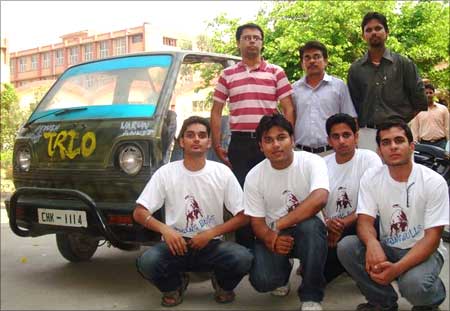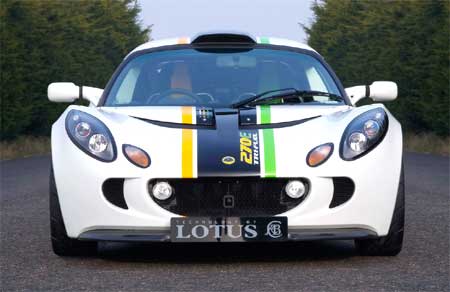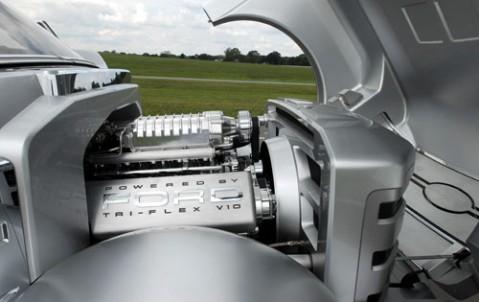
In their endeavor to produce a cost effective and environment friendly vehicle, the students of MM University has made first of its kind tri-fuel car- TRIO.
Four BTech students of MM University -- Ankit Kakkar, Mohit Goyal, Varun Dhir and Piyush Saini -- have proved their mettle by inventing TRIO.
The car can run on conventional fossil fuel i.e. gasoline and LPG as well as on electricity. The basic aim of TRIO is to reduce the cost of transportation and pollutant emission of the vehicle.
Students sitting from L to R: Piyush Saini, Mohit Goyal, Ankit Kakkar and Varun Dhir.
Teachers standing L to R: Rajesh Khanna, N K Batra (Head of the Dept), Vivek Jain (mentor)

The TRIO will use petrol, liquefied petroleum gas and battery packs. It can run solely on any of these fuel sources. The usage of these different sources will depend upon the engine RPM, torque required and speed of the vehicle.
TRIO has an in-build generator to produce electricity.
The cost of running TRIO on various fuels are:

Applauding the efforts of the students, Tarsem Kumar Garg, Chancellor, MM University said, "Long thought to be inexhaustible, fossil fuels have already reached its peak for oil extraction and production, and that it is only a matter of time before natural gas and coal follow suit.
"These near-term concerns about oil supply have led to increasing focus on, and exploration of, alternative sources of petroleum.
"We are proud of our students for providing an option to combat the problems of rising fuel cost and environmental threats."